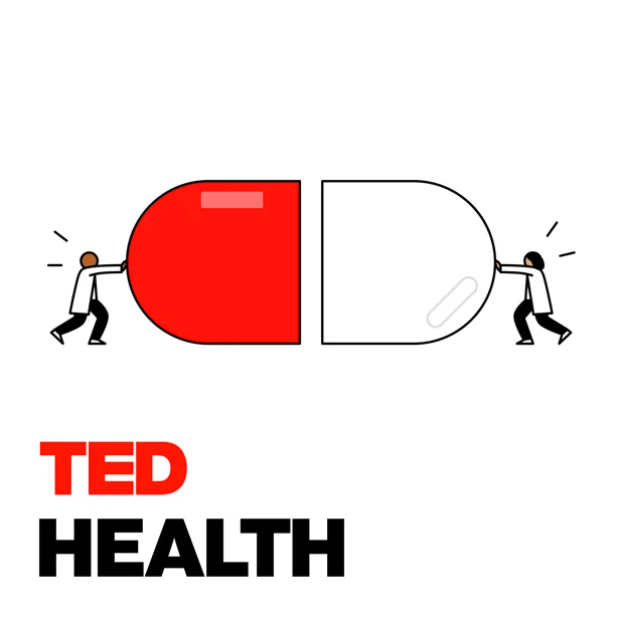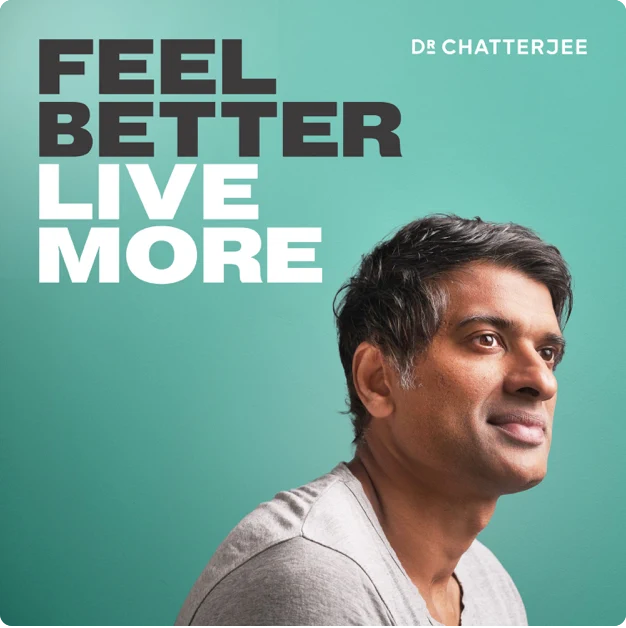Astuces, histoires, paraboles et ressources
Temps d’écran et réseaux sociaux
We are in the midst of a teen mental health crisis. Since 2011, the rate of U.S. hospitalizations for preteen girls who have self-harmed is up 189 percent, and with older teen girls, it’s up 62 percent. Tragically, the numbers on suicides are similar — 151 percent higher for preteen girls, and 70 percent higher for older teen girls.
NYU social psychologist Jonathan Haidt has spent the last few years trying to figure out why, working with fellow psychologist Jean Twenge, and he believes social media is to blame. Jonathan and Jean found that the mental health data show a stark contrast between Generation Z and Millennials, unlike any demographic divide researchers have seen since World War II, and the division tracks with a sharp rise in social media use.
As Jonathan explains in this interview, disentangling correlation and causation is a persistent research challenge, and the debate on this topic is still in full swing. But as TikTok, Instagram, Snapchat and the next big thing fine-tune the manipulative and addictive features that pull teens in, we cannot afford to ignore this problem while we sit back and wait for conclusive results. When it comes to children, our standards need to be higher, and our burden of proof lower.
A new documentary called The Social Dilemma comes out on Netflix today, September 9, 2020. We hope that this film, full of interviews with tech insiders, will be a catalyst and tool for exposing how technology has been distorting our perception of the world, and will help us reach the shared ground we need to solve big problems together.
An information system that relies on advertising was not born with the Internet. But social media platforms have taken it to an entirely new level, becoming a major force in how we make sense of ourselves and the world around us.
Columbia law professor Tim Wu, author of The Attention Merchants and The Curse of Bigness, takes us through the birth of the eyeball-centric news model and ensuing boom of yellow journalism, to the backlash that rallied journalists and citizens around creating industry ethics and standards.
Throughout the 20th century, radio, television, and even posters elicited excitement, hope, fear, skepticism and greed, and people worked together to create a patchwork of regulation and behavior that attempted to point those tools in the direction of good. The Internet has brought us to just such a crossroads again, but this time with global consequences that are truly life-and-death.
Natasha Dow Schüll, author of Addiction by Design, has spent years studying how slot machines hold gamblers spellbound, in an endless loop of play.
She never imagined the addictive designs which she had first witnessed in Las Vegas would go bounding into Silicon Valley and reappear on virtually every smartphone screen worldwide.
In the first segment of this two-part interview, Natasha Dow Schüll offers a prescient warning to users and designers alike: How far can the attention economy go toward stealing another moment of your time? Farther than you might imagine.
When we press play on a YouTube video, we set in motion an algorithm that taps all available data to find the next video that keeps us glued to the screen.
Because of its advertising-based business model, YouTube’s top priority is not to help us learn to play the accordion, tie a bow tie, heal an injury, or see a new city — it’s to keep us staring at the screen for as long as possible, regardless of the content.
This episode’s guest, AI expert Guillaume Chaslot, helped write YouTube’s recommendation engine and explains how those priorities spin up outrage, conspiracy theories and extremism. After leaving YouTube, Guillaume’s mission became shedding light on those hidden patterns on his website, AlgoTransparency.org, which tracks and publicizes YouTube recommendations for controversial content channels.
Through his work, he encourages YouTube to take responsibility for the videos it promotes and aims to give viewers more control.
What is the internet doing to us?
The Times tech columnist Kevin Roose discovers what happens when our lives move online.
Divers
With Lori Gottlieb
We are in the middle of a global trust crisis. Neighbours are strangers and local news sources are becoming scarcer; institutions that used to symbolise prestige, honour and a sense of societal security are ridiculed for being antiquated and out of touch.
Today’s extremists don’t need highly produced videos like ISIS. They don’t need deep pockets like Russia. With the right message, a fringe organisation can reach the majority of a nation’s Facebook users for the price of a used car. Our guest, Zahed Amanullah, knows this firsthand. He’s a counter-terrorism expert at the Institute for Strategic Dialogue, and when his organisation received $10,000 in ad credits from Facebook for an anti-extremism campaign, they were able to reach about two-thirds of Kenya’s Facebook users.
One of the oldest technologies we have is language. How do the words we use influence the way we think?
The media can talk about immigrants scurrying across the border, versus immigrants crossing the border. Or we might hear about technology platforms censoring us, versus moderating content.
If those word choices shift public opinion on immigration or technology by 25%, or even 2%, then we’ve been influenced in ways we can’t even see. Which means that becoming aware of how words shape the way we think can help inoculate us from their undue influence. And further, consciously choosing or even designing the words we use can help us think in more complex ways – and address our most complex challenges.
After a 4-year battle with cancer, Anita fell into a coma and was given days to live. As her doctors gathered to revive her, she journeyed into a near death experience (NDE) where she was given the choice to return to her physical form or to continue into this new realm. She chose the former, and when she regained consciousness, her cancer began to heal. To the amazement of her doctors, she was free of countless tumours and cancer indicators within weeks.
Santé et accompagnement
With Anees Bahji
With Tim Spector
It’s a bold claim: that (almost) everything you’ve been told about food is wrong. But by the end of today’s conversation, I think you’ll be questioning what you previously thought was true and embarking on a new way of eating that’s right for you.
My guest, Tim Spector, is a Professor of Genetic Epidemiology and Head of the Department of Twin Research at King’s College London. He’s a leading expert on the gut microbiome whose work has transformed what we know about nutrition and health.
Tim’s latest work highlights how much we really don’t know about food. Aside from the consensus that plant foods are good for us, ultra-processed junk foods are not, there’s very little evidence or expert agreement on anything else. So there’s most definitely not a one-size-fits-all ‘correct’ way to eat.
During our chat we cover calorie counting, artificial sweeteners, the dangers of ultra-processed foods and how poor science lets the food industry maintain that its products are healthy, simply because they’ve not been proven to be harmful. We discuss the benefits of fasting, and the perception that you need to graze all day. The diet industry perpetuates the myth that if we don’t have a snack to hand at all times, we’ll have an energy dip, lack focus and we might even faint! For most of us, it’s actually the reverse that’s true.
With this in mind, we agree that nutrition should be at the heart of the curriculum in schools. Our children can cope at school without mid-morning and afternoon snacks. I share Tim’s passion that we should be teaching our children how to recognise real versus fake food with the same enthusiasm that we teach them to read and write.
I find the concept of personalised nutrition hugely empowering. As Tim states in his most recent book, ‘You are very unlikely to be average’. I’ve seen it first-hand with my patients, many of whom respond completely differently to the same ways of eating. It’s why I describe my approach as ‘diet agnostic’ and, like Tim, I’d actively encourage you to start experimenting with what, how and when you eat. I hope this conversation inspires you to explore what makes you thrive.
With Professor Francis McGlone
“Touch is not just a sentimental human indulgence, it’s a biological necessity”
Did you know that being touched is essential for healthy brain development? Yet with teachers, healthcare professionals and work colleagues being increasingly hesitant about social touching, for the first time in the evolution of human history, many of us are being exposed to less touch than ever before.
But what effect is all this having on our emotional health?
World-leading researcher Professor Francis McGlone explains the importance of touch for humans and the devastating consequences of not receiving it. The research in this area is mind-blowing and learning about it has changed the way I interact with my family. I hope you find this conversation useful.
“The more logical you are in your approach to your sleep, the more you’re going to screw it up,” says sleep specialist Rafael Pelayo, MD. Pelayo is a clinical professor of psychiatry and behavioral sciences at the Stanford Center for Sleep Sciences and Medicine and the author of the forthcoming book How to Sleep, which will be published in December 2020.
Today, Pelayo answers our most pressing sleep questions: What’s really happening when we’re dreaming? Why do we sleep? Can we catch up on sleep? How much sleep do kids need? What causes sleep to become dysfunctional or disordered? How much are you affected by the way your partner sleeps? What can we do to feel rested when we wake up?
“There is so much hurt that doesn’t have to remain unhealed,” says Molly Howes, PhD. “A good apology can go the distance to lessen that pain.” Howes is a Harvard-trained clinical psychologist and the author of A Good Apology: Four Steps to Make Things Right.
Mark Wolynn is the director of the Family Constellation Institute in San Francisco.
The focus of his work is healing trauma. Wolynn believes that the traumas of our parents, grandparents, and even great grandparents can live on in us—particularly if they are unresolved. If you’re triggered by something and can’t figure out why, Wolynn says the answer might lie in your family history.
He wrote a book about it, called It Didn’t Start with You. Today, Wolynn talks with host Elise Loehnen about the tools he uses to help people get to the root of difficult or bewildering issues and his strategies for freeing yourself from harmful patterns.
Resmaa Menakem is a trauma specialist and the New York Times–bestselling author of My Grandmother’s Hands, which examines how racial trauma is deeply embedded in the body.
He joins Elise Loehnen today to discuss his work as a somatic healer, what he believes will happen nine generations from now, and why it’s not possible to “think” your way out of White supremacy. “To develop an individual response to a communal horror is inadequate,” he says. “Niceness is inadequate.”
Dr. Daniel Siegel is a clinical professor of psychiatry, and the author of multiple books on child-rearing, including “The Whole Brain Child” and “No Drama Discipline.”
Siegel’s books are popular with parents and and teachers alike, with their strategies for cultivating calmer, happier children. While mindfulness techniques — and patience — help foster healthy brain development, Siegel also suggests that improving children’s health and well-being requires addressing our own problems.
“You can binge watch an ideology in a weekend,” says Tony McAleer.
He should know. A former white supremacist, McAleer was introduced to neo-Nazi ideology through the U.K. punk scene in the 1980s. But after his daughter was born, he embarked on a decades-long journey from hate to compassion.
Today’s technology, he says, make violent ideologies infinitely more accessible and appealing to those who long for acceptance. Social media isolates us and can incubate hate in a highly diffuse structure, making it nearly impossible to stop race-based violence without fanning the flames or driving it further underground.
McAleer discusses solutions to this dilemma and the positive actions we can take together.
What causes addiction? Johann Hari, author of Chasing the Scream, travelled some 30,000 miles in search of an answer.
He met with researchers and lawmakers, drug dealers and drug makers, those who were struggling with substance abuse and those who had recovered from it, and he came to the conclusion that our whole narrative about addiction is broken.
« The opposite of addiction is not sobriety, » he argues. « The opposite of addiction is connection. »
But first, we have to figure out what it really means to connect.
With Tim Spector
“Health has become overcomplicated. I aim to simplify it”
In this podcast, we hear stories from leading health experts and exciting personalities who offer easy health life-hacks, expert advice and debunk common health myths giving you the tools to revolutionise how you eat, sleep, move and relax. Hosted by Dr Chatterjee – a GP with over 16 years’ experience, star of BBC 1’s Doctor in the House and author of The 4 Pillar Plan – Feel Better, Live More aims to inspire, empower and transform the way we feel. When we are healthier we are happier because when we feel better we live more.








